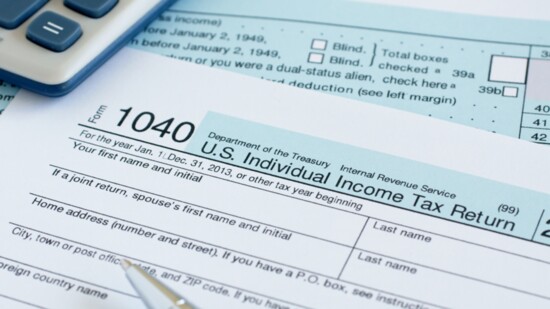December 9, 2023, is a date to remember.
At approximately 5:00 p.m. that evening, a massive tornado ripped through Hendersonville, leaving a swath of destruction of residential and business damage from one end of the city to the other. The amount of losses incurred by residents and business owners is staggering, totaling tens of millions of dollars in property damage and destruction.
While insurance covered many of the losses, it did not cover them all. Due to unanticipated depreciation, deductibles and living expenses, many taxpayers had to pay thousands of dollars in out-of-pocket expenses in order to facilitate their recovery. While these unplanned outlays were burdensome, many individuals and companies will be able to recoup part of their loss gap expenses when they file their 2023 federal tax returns.
To find out more about how to casualty loss-related maximize deductions and tax credits this year, Hendersonville Lifestyle reached out to local CPA Taylor Hooks and Small Business Services Manager Lora Clark, MAcc. from Sean Roach & Associates to help our readers prepare for the looming tax season.
Earlier this year, the Federal Emergency Management Agency (FEMA) issued a disaster declaration for residents and business owners in Sumner and several surrounding counties impacted by the December tornado. What impact does that have on taxpayers?
“In the United States, any time that a natural disaster is declared, be it weather or otherwise, certain federal tax provisions will be triggered which are designed to help provide relief to individuals and businesses impacted by the calamity,” says Taylor. “Following FEMA’s declaration, the Internal Revenue Service (IRS) issued bulletin TN-2023-06 which details the specific tax filing implications related to the tornado. The most significant of these provisions is the formal extension of the official tax filing date for 2023 individual tax returns until June 17, 2024. Commercial filers also receive relief, with corporate, partnership, S Corp, fiduciary, quarterly payroll, excise tax and tax-exempt returns also delayed until June 17. In addition, the IRS has also extended the due date for taxpayers to make contributions to individual retirement (IRA) and health savings (HAS) accounts.”
How are taxpayers able to receive disaster-related relief from the IRS?
“Taxpayers may be eligible to deduct losses not covered by insurance or other reimbursements,” says Lora. “Filers must generally deduct a casualty loss in in their returns for the year in which the event occurred. For example, for losses that happened during 2023, taxpayers should use the deduction when they file this year. Filers who are uncertain whether part of their casualty or losses will be reimbursed should defer the deduction until the tax year in which they become reasonably certain that they will not receive reimbursement. IRS Publication 547 ‘Casualties, Disasters and Thefts’ provides additional details about how and when to deduct these types of losses.”
How do taxpayers claim the casualty loss deduction?
“To claim the loss deduction, impacted taxpayers will need to file IRS Form 4684 which addresses casualties and thefts,” says Taylor. “Filers using this form to claim tornado-related losses must include the official FEMA disaster declaration number 4751-DR.”
What advice do you have for taxpayers who are claiming tornado-related casualty losses this year?
“If possible, we recommend that taxpayers take ordinary and necessary measures to maintain the same deadlines to reduce the chance of processing issues and receiving notices from the IRS,” says Lora. “The IRS urges anyone who needs a tax-filing extension beyond June 17 to request it electronically by April 15. Disaster-related requests for extension which are filed after April 15 and before June 17 can only be submitted on paper.”
“While the IRS guidance related to casualty losses is detailed and specific, it is also complicated. We strongly recommend that both personal and business taxpayers consult with their accountants and tax advisors before filing to make sure that they take advantage of every applicable tax savings opportunity,” says Taylor. “
Sean Roach & Associates, PC
128 Harlan Drive,
Hendersonville, TN 37075
615.265.8180
Over the past several years, Hendersonville and Sumner County have borne the brunt of several severe storm systems that have resulted in significant casualty losses for both personal and business taxpayers. To ensure proper tax treatment following significant weather events, filers should seek the advice of professional tax preparers before submitting their 2023 returns.

